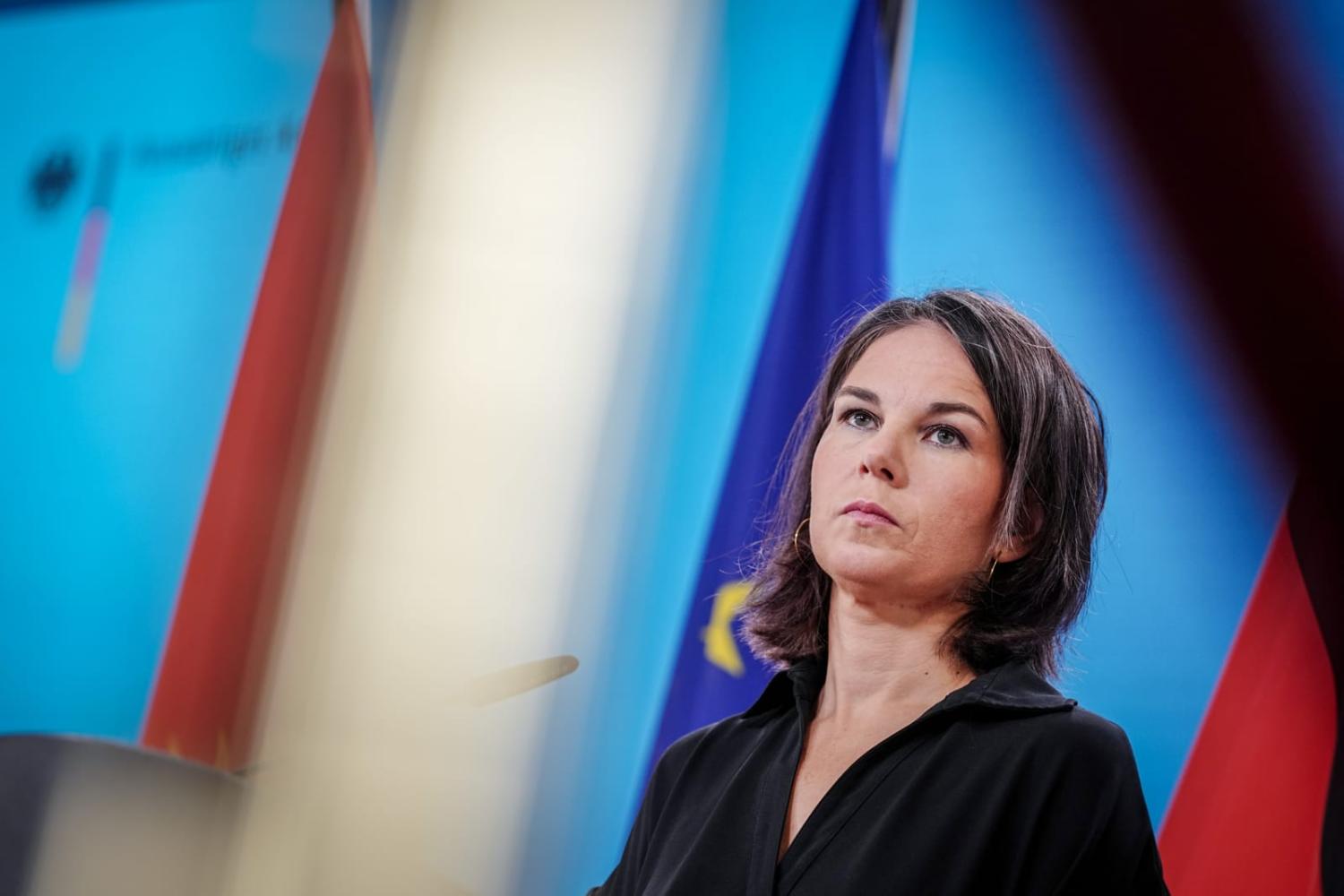Foreign Minister Annalena Baerbock’s address to the Lowy Institute this week highlighted the significant changes in German foreign and security stance over the last 18 months, especially when it comes to dealing with authoritarian states. It was quite unlike any of the politicians’ speeches I sat through as Australian Ambassador in Berlin during the Merkel era. There was none of the usual caution and caveats as she highlighted threats to the international order in the Indo-Pacific. And she certainly didn’t pull her punches about China, which she described flatly as a competitor and strategic rival “when it comes to the very fundamentals of how we live together in this world”.
Baerbock first came to the attention of most international observers in January last year. Russian troops were massing on Ukraine’s borders and Vladimir Putin was demanding guarantees that Ukraine would never join NATO. Baerbock, the leader of the German Greens, was less than two months into her role as foreign minister in Germany’s new “traffic light” coalition. Her head of government, Chancellor Olaf Scholz of the Social Democrats, stood accused of weak, vacillating leadership at what was a dangerous moment for the global order.
And then Baerbock’s voice began to cut through the static. As the Russians revved their tanks, she conducted her own visits to Kyiv and Moscow, assuring her Ukrainian hosts that an attack would come at a high price for the aggressor, and publicly warning her Russian counterpart that Germany would have no choice but to respond if the international rules were broken – “even if there is a high economic price”.
Since then, Putin’s aggression has led the German coalition government to authorise sweeping changes to the country’s foreign and security policy. Scholz’s speech to the German Bundestag on 27 February last year, in which he announced the export of lethal weapons to Ukraine and substantial new funding for Germany’s crumbling military forces, was an important milestone on this journey. While Berlin’s Western allies may still sometimes be frustrated by its slow decision making and implementation timetables, Germany has shown a new willingness to step forward in the face of aggression – a significant change for a country where aversion to confrontation has deep historical roots dating back to the Nazi era.
Beijing’s refusal to criticise the Russian invasion of Ukraine, combined with China’s own aggressive conduct in the Indo-Pacific, also led the German government to adopt a new China strategy in July this year. While acknowledging the benefits of the major economic partnership between the two countries, this document also describes in sober terms how China’s push for domination in the Indo-Pacific has damaged international trust. It also calls for “de-risking” Germany’s significant exposure to the Chinese economy. As others have noted, Australia and Germany have a lot to learn from each other in this sense. The new strategy represented a significant departure from the traditional German approach to China, which has tended to prize the trade and investment relationship above all else.
This new China strategy was the main platform for Baerbock’s Lowy speech. Her personal commitment to the new, more assertive stance was very much on display on Tuesday, and the audience was left in little doubt that she had played an important leadership role in driving the new approach. Close observers of German politics already understood this point. Unlike Baerbock, Scholz had shown every sign of being comfortable with the status quo. His personal interactions with China since becoming Chancellor included leading a business delegation there in November 2022 and supporting a push by Chinese interests to buy a stake in a Hamburg port terminal. Much of the coalition government’s internal wrangling over the China strategy became visible to the German public, with leaked drafts making it clear that Baerbock’s foreign ministry was the principal proponent of change.
It might seem surprising that it’s been the leader of the German Greens, with its pacifist traditions, who has pushed so hard for a more hawkish stance towards the world’s two leading autocracies. But there is a real consistency to Baerbock’s approach. She campaigned on the importance of a “values-guided” foreign policy in the 2021 German election, and clearly meant what she said.
Russia presented an early test of this approach, and China was the second. Baerbock is also evidently a pragmatist who recognises the importance of adapting to changes in the international landscape. As she said in her Lowy speech, “China has changed, and that’s why our policy towards China also needs to change”.
Baerbock’s presentation was also closely informed by Australia’s own judgments about China’s expanding influence in the Indo-Pacific, and our experience in how best to manage it. She quoted the key findings of Australia’s defence strategic review back at us, underlining its conclusions about the risks associated with China’s military build-up in the region. She referenced our difficult bilateral experiences with China and praised the resolve we’d shown in the face of Chinese bullying. She emphasised that countries such as Australia and Germany, with their shared commitment to the international rules, need to work closely together to provide Indo-Pacific countries with viable alternative partnerships.
When Baerbock spoke of Germany’s commitment to a peaceful Indo-Pacific that is “neither unipolar nor bipolar” she sounded a lot like Australia's Penny Wong speaking out against a “closed, hierarchical region where the rules are dictated by a single major power”.
Of course, it would have been much better if Baerbock had been able to give her speech in person in Sydney. The cancellation of her visit to this region last week following an aircraft break-down was an embarrassing setback for a minister intent on sending a message about her government’s commitment to the Indo-Pacific. But the bigger point is that the world’s fourth largest economy shares Australia’s vision for the Indo-Pacific, recognises the risks, and is prepared to work with us to that end. That’s a very good thing.

